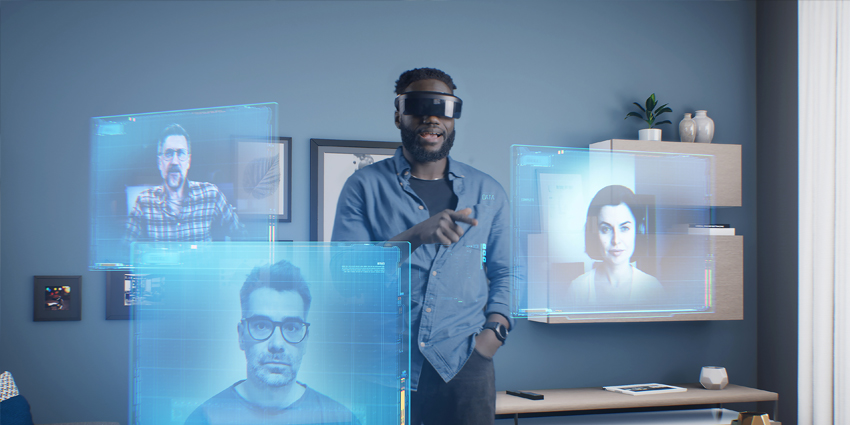Meta set the bar high when it first unveiled its Horizon Worlds platform and Metaverse concept. The company promised great promise in a short period of time. Meta’s expectations and marketing predicted rapid adoption, but the company’s Metaverse ambitions remained dormant.
A recent post from the Menlo Park-based company says that although the hype cycle is winding down and many eyes are turning to the genAI boom, including Meta, the company remains “committed to both.”
Meta has also been keen to communicate “promising opportunities” for Metaverse use cases in the enterprise sector.
Meta says training and education have potential value for shared, immersive experiences. In the same blog post, Meta noted that it is leveraging the impact of XR on learning outcomes today.
The company also highlighted a collaboration demo called Caddy, which allows remote groups to work on VR/MR CAD models.
Meta says the Caddy demo highlights how VR/MR can make tools like CAD and 3D modeling software more accessible, with Meta noting how the technology could “level the playing field.”
Moreover, Meta emphasizes that Metaverse research will soon benefit many fields, including healthcare, sports, and entrepreneurship.
According to Meta, consumer interest in VR/MR applications is also growing through the Quest portfolio. Fitness and wellness, in particular, appears to be a key consumer use case for Quest’s VR/MR, with these applications recently topping sales charts.
Meta is dedicated to the metaverse
The news follows a lull in interest in the Metaverse from consumers and Meta itself, with the company not mentioning its investment in at least a year’s worth of Connect showcases.
Meta will likely focus on XR gaming and AR-lite consumer wearables instead.
But to round out the year, Meta’s XR research division posted quarterly profits for the first time, earning £1 billion in the period, based on what the company calls a full-year efficiency. Reality Labs earned $1 billion in the three months ended 2023. The Reality Labs division lost $4.65 billion over 2023, but reported positive quarterly earnings.
That year’s efficiency may have given Meta time to step back from its grand ambitions and strategize new ways to take on the ever-emerging XR space.
It appears that a reorganized strategy is underway. Meta CEO Mark Zuckerbergrecently met LG Chairman Cho William and Home Entertainment Company President Park Hyeong-se., LG Twin Tower in Yeouido, Seoul. The two-hour meeting discussed possible future collaboration on XR devices between the two companies.
The meeting marked the beginning of a strategic collaboration between LG and Meta to advance XR device development and customer experience innovation. During the discussion, LG’s William Cho tested the Meta Quest 3 headset, Ray-Ban Meta smart glasses, and large language models, and expressed interest in leveraging Meta’s technology for AI-enabled XR devices.
LG Electronics also believes that it can create a technology ecosystem by combining its TV division services with Meta’s XR portfolio. The company plans to showcase the benefits of its smart device OS, which could potentially provide valuable revenue streams and services to Meta’s XR hardware ecosystem.
LG’s Smart OS has the platform worth about $750.5 million in app revenue, which could help Meta compete with Apple’s already well-established Vision Pro product.
Over the past few months in particular, Meta has seemed to be saying goodbye to the final echo of Oculus, with the company removing all Oculus accounts and associated data by the end of the month.
Meta’s move means Quest users who log in to XR devices with an Oculus account will no longer be able to do so until the end of the month. Additionally, all data associated with a user’s Oculus account will disappear by the end of March.
Perhaps a combination of minor commotion within Meta’s XR division could lead to a big move in the coming months.

